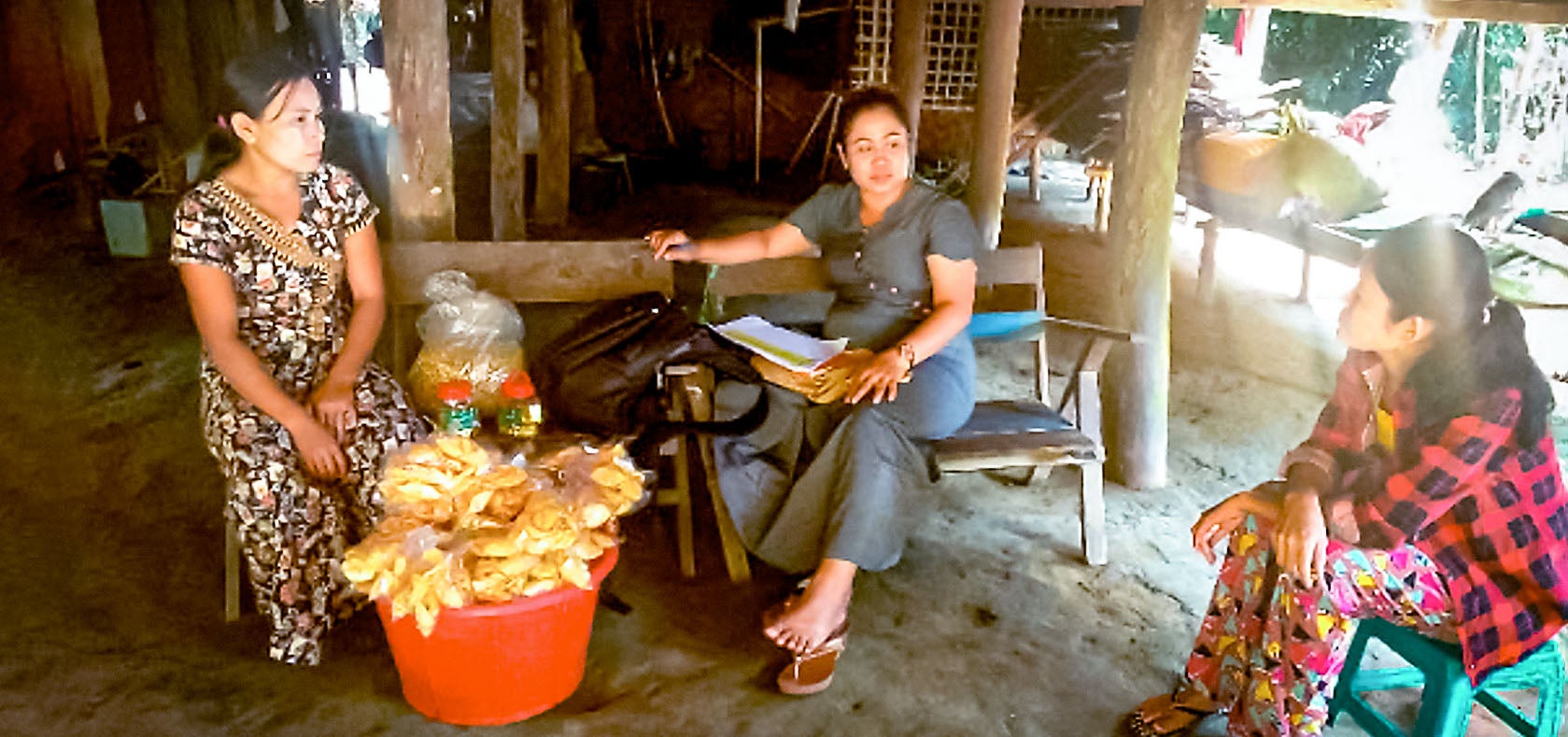From where I stand: “The start-up programme couldn’t have come at a better time”
Rakhine State, Myanmar – Daw Aye Mu had always wanted to learn how to expand her small business making snacks in western Myanmar. In July 2021, she was selected to attend the UN Women and World Vision Start to Improve Your Business (SIYB) training, along with a cash grant from partner organization Meikswe Myanmar. She explains how the opportunity was a stroke of personal good fortune amid difficult times for her country.Date:

My name is Daw Aye Mu, and I live in Nga Tauk Ta village, Sittwe Township in Rakhine State. I am 31 years old and I have a husband and two children. My son is very sweet and he is currently in grade 9, while my lovely daughter – the youngest – is in grade 3. My husband is a migrant worker in Thailand and he has been working there for seven years now, and we both work to support our family. I worked two jobs, as a pig farmer and as a casual labourer, but I have always wanted to start my own business so with the help of my husband, I finally established my very own business making a popular snack in Rakhine State called parpalar, which is made out of fish and flour.
In recent times though, I had been thinking about how I can further expand my business so when I enrolled in the SIYB training in July 2021, it made my expansion plans possible.
The SIYB training included several sessions that taught us about business ideas, financial planning, basic marketing, market assessment and business coaching, and entrepreneurship skills.
I practice a lot what I have been taught during the SIYB training, especially the book-keeping process, how to communicate with customers, and how to promote one’s goods. All this has not only helped me in increasing the number of customers but to also procure more items and become a distributor to other stores. In fact, I’ve even set up a new juice stand next to my small store. I’m excited about the future and the growth of my business.
When I first started the business, I didn’t even have many customers, and it became even more difficult after the political situation changed in February. The price of goods also increased, and I was having doubts about expanding the business because I saw how other small businesses were also affected. I wasn’t earning enough, and it was always a struggle to keep up the business so the SIYB training couldn’t have come at a better time. Being selected to receive the cash grant support from Meikswe Myanmar was also crucial and this the support has allowed me to be where I am today. Since the training and since I expanded the business, I’m not only earning more but there is also more profit, so I’ve even been able to save 200,000 – 250,000 Myanmar Kyat (around USD130) every month.
My husband is also very supportive about my ambition. He told me that neither of us should have to depend on the other, and that the income and household chores should be shared between us. The financial stability that I have through this business will not only help me to save towards building a better home, but also support my children’s future and education. Today, I feel brave and hopeful enough.”
Meikswe Myanmar is a sub-partner of World Vision, one of UN Women’s implementing partners for the Rakhine Area Based Programme (RABP). The RABP is a joint programme with UNDP funded by Canada and Germany.
UN Women acts to achieve economic rights and growth for all by promoting decent work, equal pay for equal work, equal access to economic assets and opportunities, and the fair distribution of unpaid care work. Partnership with the private sector, including through the Women’s Empowerment Principles, helps transform business practices in support of gender equality and women’s empowerment.